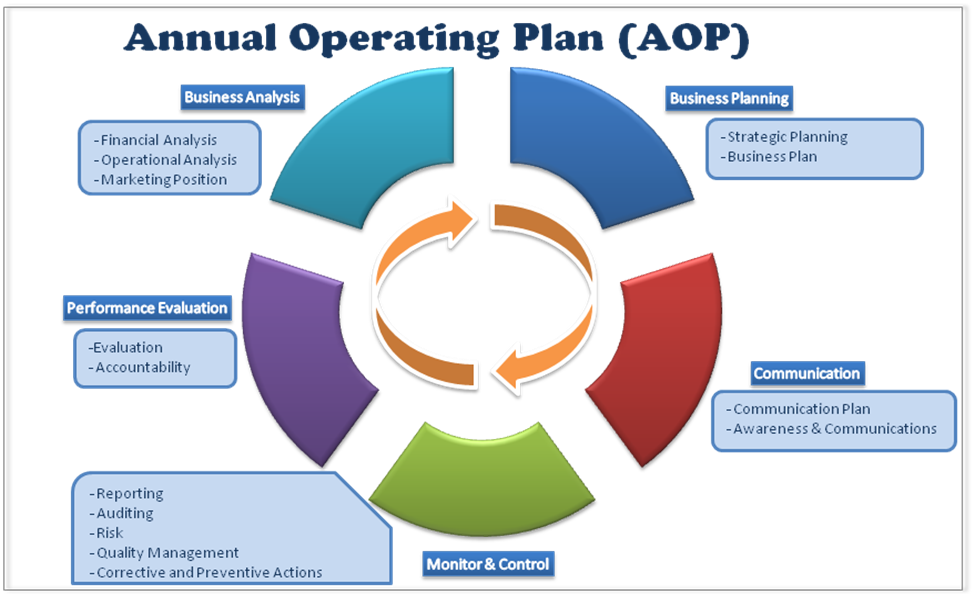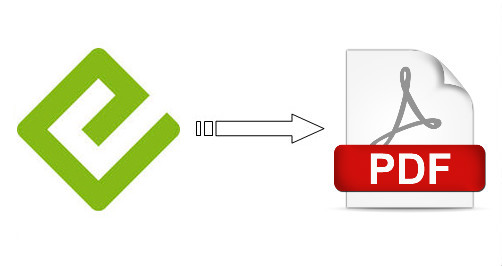Dropshipping vs Amazon FBA vs Affiliate Marketing:
is fba dropshipping
Is Amazon FBA the same as dropshipping, Difference between Amazon FBA vs Dropshipping vs Affiliate marketing: Choosing the Right Fulfillment Option for Your Business is crucial for the success of your business. Two popular options, Amazon FBA, and dropshipping, offer different approaches to product fulfillment. In this post, we will compare and contrast Amazon FBA and dropshipping to help you make an informed decision for your business.
Dropshipping vs Amazon FBA vs Affiliate Marketing:
The main distinction between FBA and dropshipping is that FBA necessitates shipping products in bulk to Amazon, whereas dropshipping suppliers manage all aspects of fulfillment without requiring you to maintain any inventory on your end.
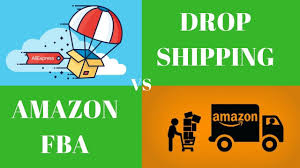
Amazon FBA vs Dropshipping vs Affiliate marketing
Amazon FBA vs Dropshipping shares the common benefit of having a third party handle product fulfillment. However, they differ in several ways. Let’s explore the advantages they offer before delving into their distinctions.
Choosing between Amazon FBA and dropshipping depends on various factors such as your business goals, budget, product range, and desire for control. If you prioritize fast and reliable shipping, access to Prime customers, and hands-off fulfillment, FBA is an excellent option. On the other hand, dropshipping offers flexibility, low upfront costs, and the opportunity to focus on marketing and branding. Carefully consider your business needs and evaluate the pros and cons of each method to make the right choice for your e-commerce venture.
What is Amazon FBA (Fulfillment by Amazon):
Amazon provides two models for selling products: FBA (Fulfillment By Amazon) and FBM (Fulfillment By Merchant).
With Amazon FBA, you send your inventory to Amazon’s warehouse and list your products on the Amazon website. When a customer places an order, Amazon takes care of picking, packing, and shipping the order from their warehouse. They also handle customer service and returns, similar to the dropshipping model.
Amazon FBA presents a significant opportunity for sellers targeting a broad audience. It offers a streamlined business model that allows for rapid scaling and growth. By leveraging Amazon’s fulfillment infrastructure and customer base, sellers can focus on expanding their product offerings and marketing efforts while leaving fulfillment and customer service in Amazon’s capable hands.
Here are some key advantages of Amazon FBA:
- Prime Shipping: With FBA, your products automatically qualify for Prime Two-Day Shipping, giving you a competitive edge and attracting more customers.
- Multi-Channel Fulfillment: FBA allows you to fulfill orders not only on Amazon but also on other sales channels, leveraging Amazon’s efficient fulfillment network.
- Global Reach: FBA Export enables you to sell your products in over 100 countries, expanding your customer base and boosting international sales.
- Customer Service: Amazon takes responsibility for customer inquiries, order issues, and returns, saving you time and ensuring a positive customer experience.
What is Dropshipping:
Dropshipping is an e-commerce model where the seller places orders directly with wholesalers or vendors, who then ship the products directly to customers. It serves as a storage and fulfillment service, allowing for a quick and easy start to the business. The key advantage of dropshipping is that it doesn’t require massive investments to scale.
To begin, you list and advertise your products through platforms like Shopify, Amazon, eBay, or other relevant e-commerce platforms. These platforms serve as your storefront. The products you sell are stored with various suppliers at different locations.
When a customer makes a purchase, you notify your dropship supplier, who handles the shipping process. The customer receives the order, thinking it was dispatched by you. You only pay for the product once you have received payment from the customer. It’s a straightforward process.
While dropshipping is often seen as a quick way to make money, it’s important to recognize that it requires real work and effort. To succeed, you need to strategize and plan your business, including finding the right suppliers and establishing a strong relationship with them. Like any other business model, dropshipping requires dedication, marketing, and customer service to build a successful e-commerce venture.
Here are some key advantages of dropshipping:
- Low Upfront Costs: Dropshipping eliminates the need for upfront inventory investment, making it an attractive option for entrepreneurs with limited capital.
- Flexibility and Scalability: With drop shipping, you have the flexibility to offer a wide range of products without worrying about storage space or inventory management. It also allows for easy scalability as you can add new products or suppliers relatively quickly.
- Less Risk and Control: Since you don’t hold inventory, you are not exposed to the risks of unsold products or inventory management. However, you have less control over product quality, shipping times, and potential stockouts.
- Marketing and Branding Opportunities: Dropshipping enables you to focus on marketing and building your brand while leaving the fulfillment aspects to your suppliers.
Key Benefits: Amazon FBA vs Dropshipping vs Affiliating marketing
Here are some benefits specific to Amazon FBA:
- Products are automatically eligible for free Prime Two-Day Shipping.
- Multi-channel fulfillment allows you to fulfill orders from other sales channels using FBA.
- Buy with Prime enables customers to enjoy Prime benefits when purchasing your products.
- FBA Export expands your reach to customers in over 100 countries.
- On-time delivery is guaranteed for customers with Prime memberships.
- Amazon takes responsibility for any delivery issues that may arise.
- Returns are managed by Amazon (with exceptions for certain categories).
- Little initial investment
- No need for a warehouse
- Inventory tracking isn’t necessary
- Potential scalability
- A third party handles all aspects of shipping
Difference – Amazon FBA vs Dropshipping vs Affiliate Marketing
Dropshipping offers the advantage of low initial expenses but comes with drawbacks such as longer delivery times and limited control over product quality. On the other hand, FBA (Fulfillment by Amazon) takes care of order fulfillment and customer service while granting listings the Prime Shipping badge. This ensures efficient shipping and customer satisfaction.
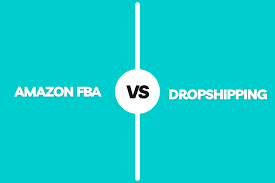
Amazon FBA vs Dropshipping vs Affiliate marketing
- Dropshipping: Low upfront costs, but slow delivery times and less control over product quality.
- FBA (Fulfillment by Amazon): Amazon handles fulfillment and customer service.
- FBA listings get the Prime Shipping badge, which can attract more customers.
- Dropshipping allows you to sell products without holding inventory.
- FBA provides faster shipping options and reliable customer service.
- Dropshipping requires finding reliable suppliers and managing inventory levels.
- FBA can offer better customer satisfaction with Amazon’s trusted brand reputation.
- Dropshipping can be more flexible in terms of product selection and pricing.
- FBA can provide access to a larger customer base through Amazon’s platform.
- Dropshipping may require more effort in marketing and building your brand.
- FBA may have higher fees and stricter policies compared to drop shipping.
Drawbacks: Amazon FBA vs Dropshipping vs Affiliate Marketing
While both dropshipping and FBA have their advantages, it’s important to be aware of potential issues and problems that can arise with each fulfillment method. Here are some factors to consider:
Dropshipping:
- Supplier Reliability: Relying on suppliers to handle fulfillment means you have limited control over product quality, shipping times, and stock availability. It’s crucial to find reliable suppliers who can consistently meet customer expectations.
- Inventory Management: Without direct control over inventory, there is a risk of stockouts or backorders. It’s important to stay vigilant and communicate effectively with suppliers to ensure inventory levels are maintained.
- Customer Service: As a dropshipper, you may be responsible for handling customer inquiries and resolving issues. It’s essential to provide prompt and satisfactory customer service to maintain customer satisfaction and loyalty.
FBA:
- Fees and Expenses: While FBA provides convenience, it comes with costs. Fulfillment and storage fees can eat into your profit margins, especially for low-margin products or slow-moving inventory. It’s important to carefully calculate and factor in these expenses.
- Restricted Categories: FBA has certain category restrictions, meaning not all products can be fulfilled through this method. Ensure that your product offerings comply with Amazon’s guidelines to avoid any issues or limitations.
- Competition and Buy Box: FBA is widely used, and competition for the Buy Box can be fierce. Winning the Buy Box is crucial for visibility and sales, so you need to optimize your listings and pricing to stand out from competitors.
A comparison – Amazon FBA vs Dropshipping vs Affiliate Marketing
Selling on Amazon FBA and running a dropshipping store are both viable options for e-commerce entrepreneurs. The choice between the two depends on your risk tolerance and growth strategy. If you’re willing to take risks and invest in building your brand, Amazon FBA can be a suitable option. Conversely, if you prefer a lower-risk approach, dropshipping is a good choice. In some cases, it may even be possible to pursue both models simultaneously, depending on your financial circumstances. Ultimately, it’s important to evaluate both options and make an informed decision based on your specific goals and circumstances.
| Factors to consider |
Dropshipping | Amazon FBA |
| Risk | Low | High |
| Investment | Low | High |
| Profit margin | Low | High |
| Direct customer contact |
Yes | No |
| Customer base | Small | Higher |
| Shipping | High risk |
Low -no risk |
| Freedom to customize store |
Yes | No |
| Drive external traffic | Hard | Easy |
Pros and Cons: Amazon FBA vs Dropshipping vs Affiliate Marketing
One advantage of dropshipping is its affordability, as it doesn’t require a significant upfront investment. This is beneficial for entrepreneurs who are not ready to commit substantial capital. On the other hand, Amazon FBA provides access to a vast customer base, with over 300 million active customer accounts. Leveraging FBA can yield fruitful results and enable you to tap into Amazon’s extensive customer network.
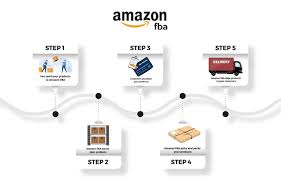
Amazon FBA vs Dropshipping vs Affiliate marketing
Amazon FBA – Advantages
- 1. Focus and scale your business
- 2. Larger Customer Base
- 3. Brand recognition
- 4. Returns and replacement
- 5. Better profitability
Cons of Amazon FBA
Amazon’s FBA program is indeed highly competitive. As more sellers embrace online selling, you’ll face significant competition in leveraging the FBA model. Scaling can be challenging, especially if you operate in a competitive niche where numerous sellers are vying for market share.
- High competition
- Product mix
- High dependency
- No contact with customers
- Fixed capital
Pros and cons of Dropshipping
In dropshipping, the process is simple: when a customer makes a purchase, you forward the order to your supplier, who takes care of packaging, shipping, and returns. This eliminates the need to maintain your inventory. With drop shipping, you can diversify your product range with minimal investment compared to stocking and managing inventory yourself.
Pros:
- Lesser Investment
- Lesser management
- Minimal risks
- Product diversification
- Time-Saving
- Operate from anywhere
Cons:
Indeed, dropshipping typically offers lower returns compared to models like FBA. Since you’re not the only seller, increasing product prices may not be feasible as customers are likely to seek cheaper alternatives. In a competitive market, generating higher profits can be challenging. The nature of dropshipping, with its lower barriers to entry and price sensitivity, means that profit margins are often slimmer compared to models where you have more control over pricing and product differentiation.
- Less profit margin
- Issues with customer service
- Promotions and PPC campaigns
- Huge competition
- Limited product knowledge
Amazon FBA vs Dropshipping vs Affiliate Marketing
Amazon FBA is a fulfillment model where sellers send inventory to Amazon, which handles packaging, shipping, and customer service. Dropshipping involves selling products without holding inventory, as suppliers ship directly to customers. Affiliate marketing is promoting others’ products and earning a commission on sales. FBA offers scalability and access to Amazon’s customer base. Dropshipping requires less upfront investment. Affiliate marketing allows for promoting a wide range of products. Each model has its advantages and considerations, so choosing the right one depends on individual goals and preferences.
Is FBA dropshipping profitable?
Dropshipping involves selling products without holding inventory. With FBA dropshipping, you can leverage Amazon’s fulfillment network to handle the storage, packaging, and shipping of products directly to customers. This can save you time and resources, allowing you to focus on marketing and customer service. To make FBA dropshipping profitable, consider the following:
- Product selection
- Pricing strategy
- Marketing and differentiation
- Operational efficiency
- Provide excellent customer service to build trust and encourage repeat business.
Amazon FBA vs Dropshipping vs Affiliate Marketing
- Spocket Dropshipping Reviews: Your Best Fulfillment Partners
- Best Oberlo Chrome Extension Download App for Dropshipping
- Dropshipping Salehoo Review: Can You Make Money With Salehoo
- 10 Top Shopify Dropshipping Stores Examples in 2024
- 10 Best Websites Like Temu: Apps like Temu to Get Free Stuff
- Amazon FBA vs Dropshipping vs Affiliate marketing

